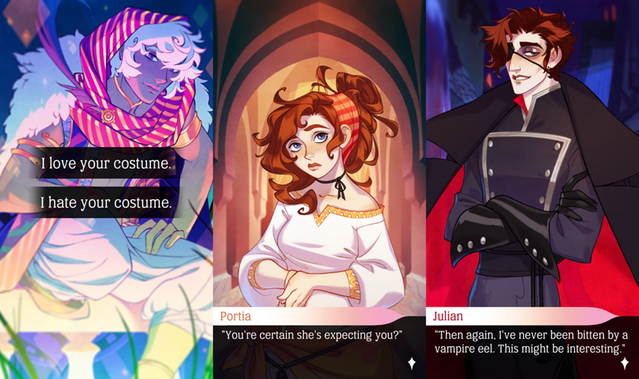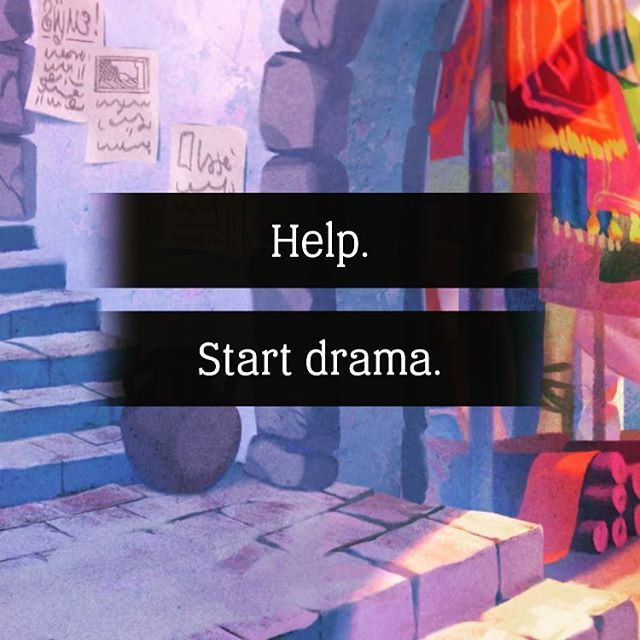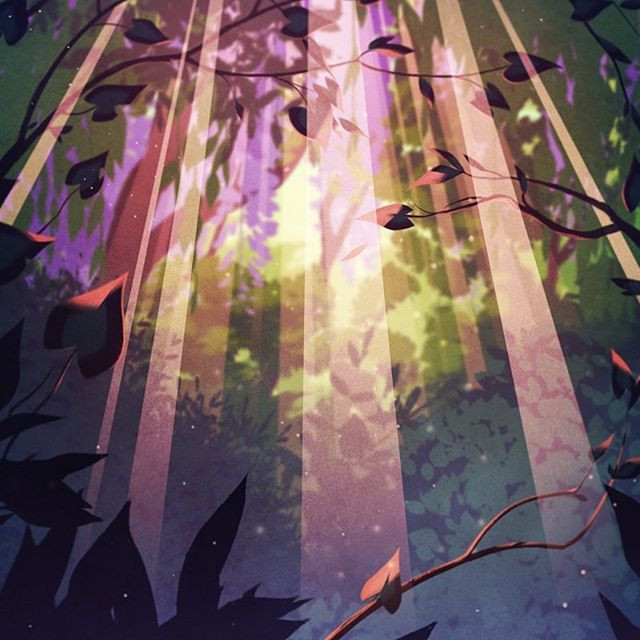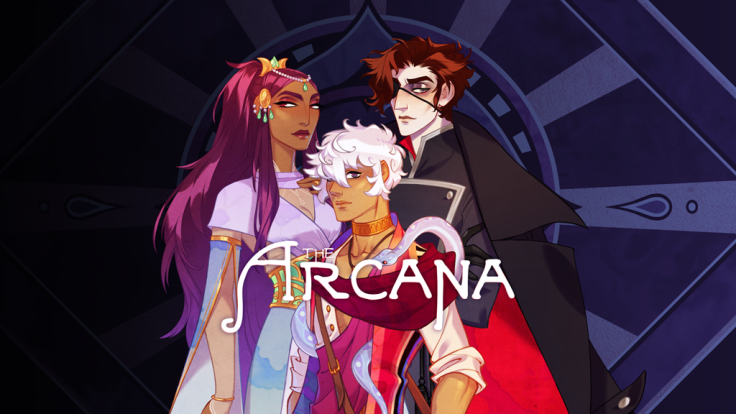Arcana is a visual novel for both iOS and Android. It's the sophomore offering from female-founded mobile gaming company Nix Hydra, whose debut title was a virtual pet called Egg Baby. Developed by a writer/artist team of two people after a Kickstarter garnered $42,000 of a $30,000 goal, Arcana’s gorgeous, lively art and evocative writing really makes it an enjoyable visual novel and a mobile game to watch out for.
The plot revolves around you: a blank slate of an individual whose name and gender is never specified (you can choose between she/her, he/him and they/them for pronouns, a welcome bit of character customization). You are a powerful magician with a special gift for telling the future through tarot cards. In short order, you meet a bevy of characters, most of whom are clearly marked out as future love interests and half of whom warn you vaguely about the other half.
Characters include Asra, your enigmatic teacher; Nadia, the harsh and decisive Countess; Portia, Nadia’s friendly and trusted servant; Dr. Julian, on the run for the murder of Nadia’s husband; Lucio, Nadia’s husband, who is dead (kind of); and most intriguing of all, a giant hulk of a man whose introduction is accompanied by the sound of rattling chains.

Each character has their own voice, which not every visual novel nails easily. Asra is coy and teasing with a hint of torment behind all the mystery, while Nadia’s quite formal, with a highly-educated vocabulary. Lucio’s teasing is more sinister, while Portia’s bright cheer is only slightly dimmed even if you take all the asshole dialogue options. Dr. Julian is urbane but down-to-earth, and Giant Man is curt and urgent.
Crafting a unique voice for each character that conveys the personality they’re meant to have is an art. Dialogue is not easy. But a mastery of dialogue is integral to making each love interest feel distinct, just as much as the art, and Arcana has that mastery down. Each character feels intriguing and multifaceted. I want to explore each of their routes and learn what mysteries lie behind all those shifting expressions and sinister warnings.
Even you have a distinct voice depending on which dialogue options you choose. There aren’t all that many (unfortunately) and it seems like the bottom choice is usually the jerk move. You can play as a cranky, independent type, or an obedient, nervous type, but either way you’re smart, gifted, curious and motivated to finish what you start.

Visual novels are infamous for wishy-washy protagonists, especially when the protagonist is meant to be more of a stand-in for the player, but Arcana manages to balance multiple dialogue options with shades of characterization that allow the player to feel like they’re actually kind of roleplaying a little here.
I also very much enjoy the art, which is stylish, bright and emotive. Part of me wishes there was more art, honestly. Sometimes moments are described that I would love to see, like the white glow and whorls of a magical sigil fading into a door’s wooden grain, or a set of guards outfitted in ridiculous costumes. However, I understand that this team is part of a larger company and has only one artist and a limited amount of time, so I try to be understanding of any limitations that must cause. It’s hard when you want more of such a good thing.

I really enjoy the character design: Nadia’s strong nose and dark skin that highlights her elegant silks so beautifully, the contrast between Asra’s fluffy white hair and copper skin, Dr. Julian’s heavy, hooded eyes, Lucian’s sharp perfection of feature, Portia’s bouncy ponytail and smattering of freckles and highly expressive face. The characters are diverse in race, gender and sex in a nonintrusive, natural way. Just as much as the writing, the character art serves to give a sense of real life to these characters and really endear them to you.
I want to give a special shout-out to the animal art: Faust the snake familiar has such a sweet, friendly little face and a lovely opalescent color scheme, while the two slinky, elegant white dogs you encounter are quite striking. The background work is similarly impactful, taking the stylization in the character art to an even higher level.

Arcana is serialized, meaning that not all chapters are out yet. Some functionality is still on the way, such as multiple saves, but there is an active Grimoire with “Memories” you can unlock. Some of the characters also feature “Previews” that let you enjoy little snippets of their routes. And if you tap their pictures, a little heart pops up and their facial expression changes, which is such a cute touch.
As of this writing, Arcana is at Version 1.015 at a new story chapter: IV - The Emperor (Night). Arcana is free to play and is available here for iOS and here on GooglePlay, though if you’re not a Kickstarter backer, some future content will only be available via in-game purchases. A detailed FAQ has more details about the characters and world. You can also follow the game’s official Twitter, Tumblr or Instagram to stay updated.
Will you be giving Arcana a try? Feel free to let us know in the comments section below.
- Great art
- Great dialogue
- Characters feel distinct
- Plot is intriguing
- Main character is no wallflower
- Not enough dialogue options
- Must wait for new chapters
- No multiple save slots















![[EG April 19] Best 'Stardew Valley' Mods That Will Change](https://d.player.one/en/full/226012/eg-april-19-best-stardew-valley-mods-that-will-change.png?w=380&h=275&f=955520b8313253ee3c39c791f6210f38)



